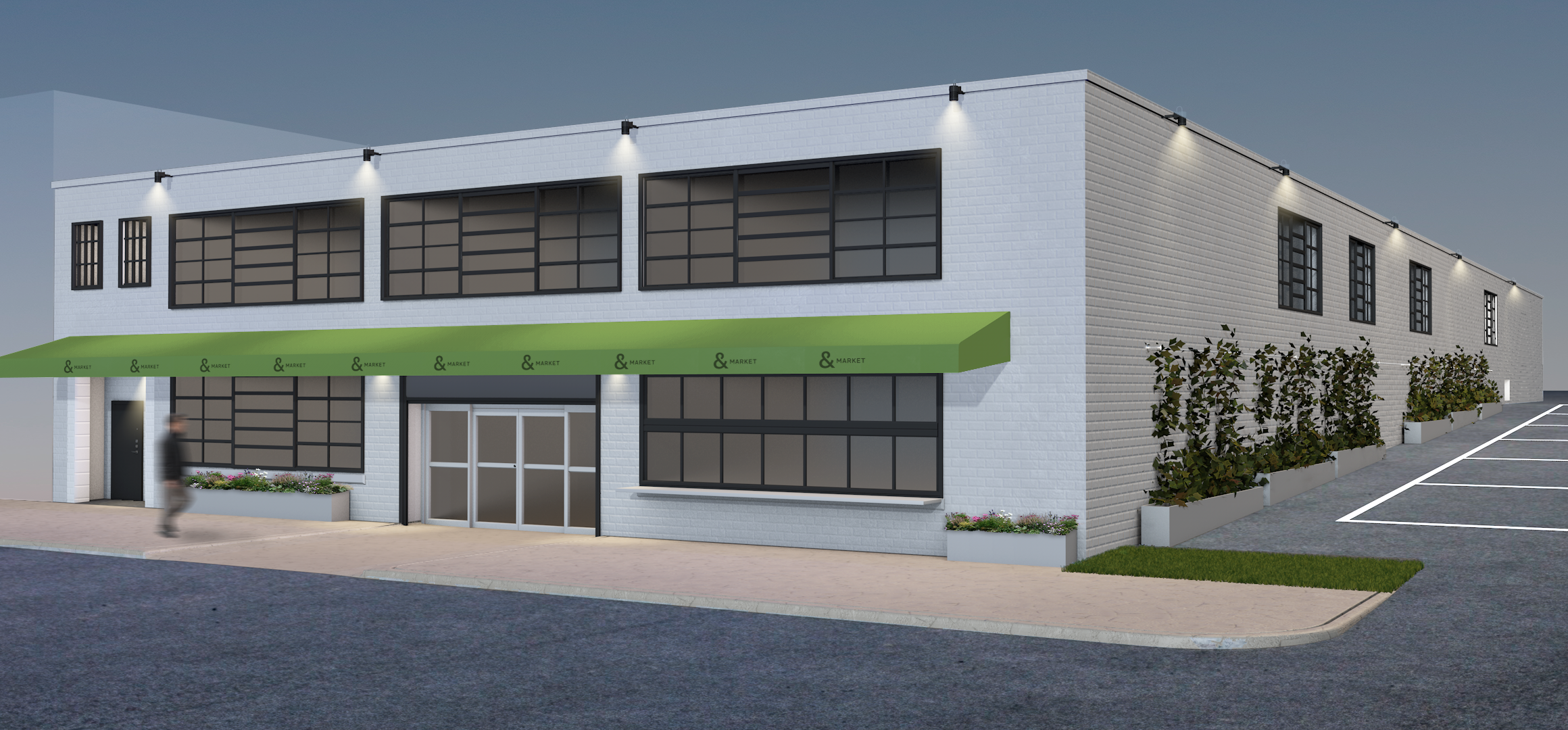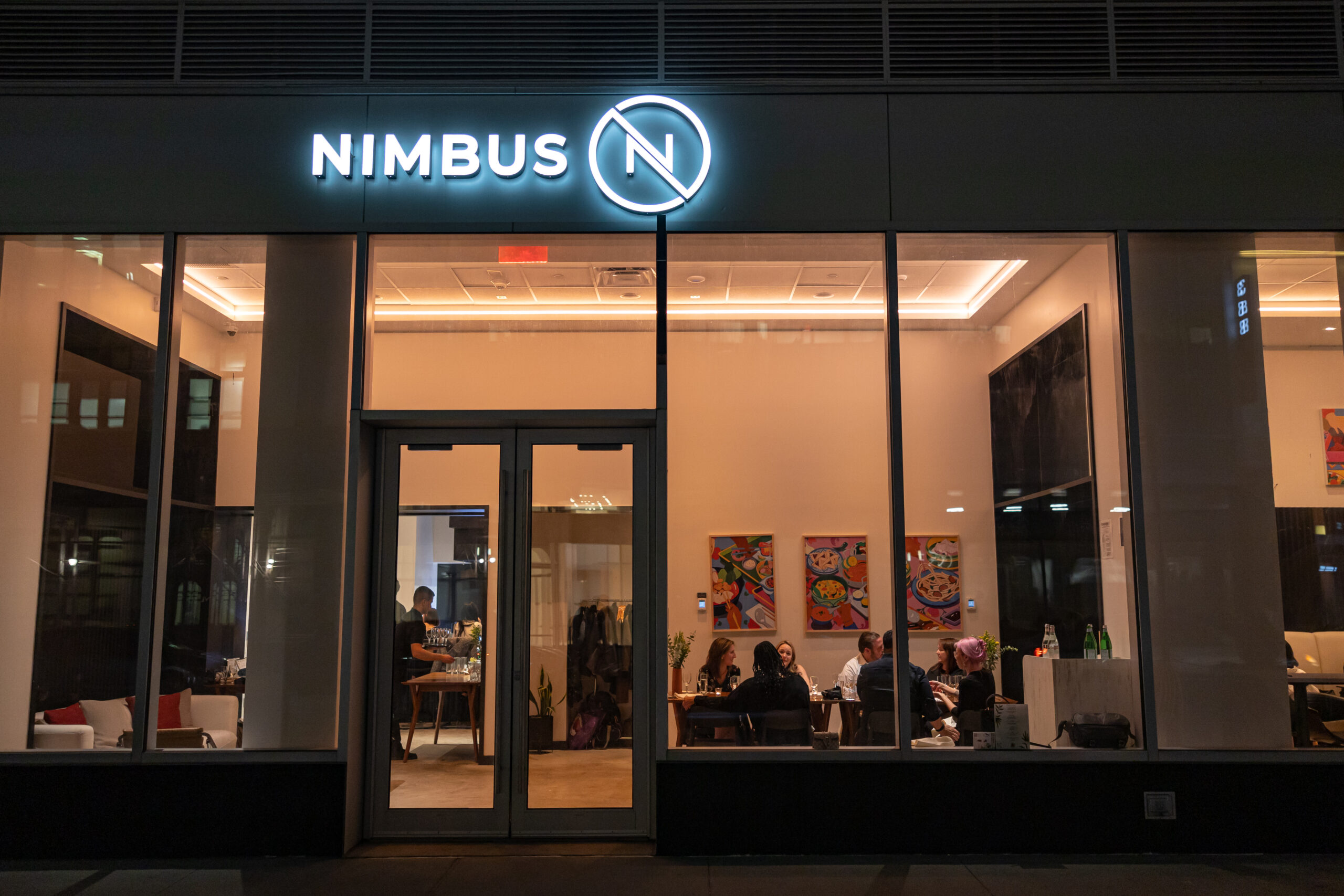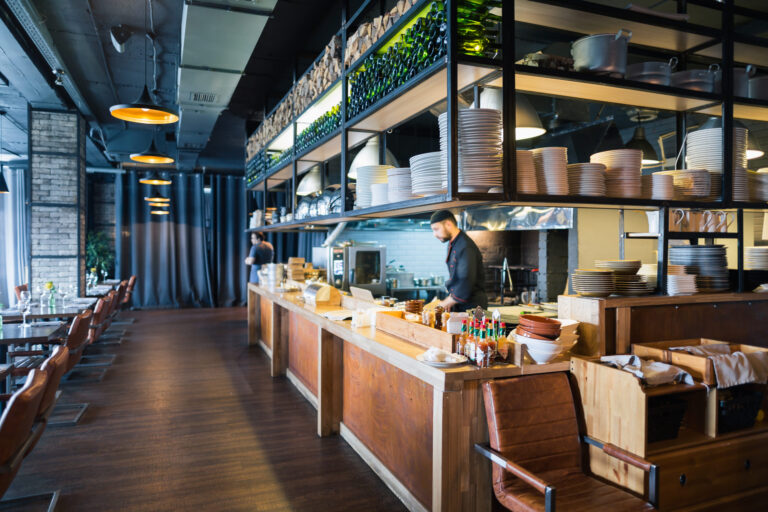Ghost kitchens have flourished during the pandemic as demand for doorstep delivery increased when restaurants were forced to close their premises.
Large national chains like Wendy's, Burger King, Popeyes, and Chick-fil-A have enthusiastically embraced the ghost kitchen trend, and virtual brands have also jumped on the bandwagon, seeing the potential to increase delivery revenue without investing millions in building brick-and-mortar locations.
But the industry is currently facing challenges as major ghost kitchen companies like Leaf and Kitchen United scale back or close their operations in the U.S. Even CloudKitchens, the Travis Kalanick-founded company that boasts a network of 400 facilities, is struggling to maintain occupancy rates for its kitchen spaces.
Amid all this, some start-ups like Franklin Junction have thrived.
Founded in 2020, the Atlanta-based company has stood out in the ghost kitchen space by challenging the traditional landlord-tenant model.
While other ghost kitchens have pivoted, Franklin Junction has stuck to a consistent approach: It fosters partnerships with chains that have spare kitchen space and restaurant brands looking to expand their delivery services.
This host kitchen model allows brands like Denny's and Frisch's Big Boy to increase revenue by preparing delivery-only meals in underutilized kitchens. For example, both Frisch's and Denny's serve as host kitchens for Nathan's Famous.
CEO Rishi Nigam said Franklin Junction's model ensures mutually beneficial, capital-free revenue growth for each restaurant partner. Nigam, who rarely gives media interviews, gave Food on Demand a candid assessment of the challenges facing the ghost kitchen industry.
“I call it the WeWork of restaurants,” he said, referring to the meteoric rise and fall of the co-working-space startup co-founded by Adam Neumann.
The traditional ghost kitchen model is too hard to scale
Nigam said from the start that the traditional landlord-tenant model “will never work”.
“This is not a scalable model,” he says. “The idea of scaling this up in one fell swoop and spending a lot of capital to build, develop, acquire and repurpose kitchens was a failure.”
Chains and virtual brands have exited the ghost kitchen space, unable to generate enough sales to cover expenses like rent, labor, third-party delivery fees, etc. Kitchen United closed its virtual food hall, and Leaf has seen brands like Wendy's and Burger King downsize or pull out of their food trailers due to lack of sales.

Franklin Junction CEO Rishi Nigam
“And I think that's the correction we're seeing now,” Nigam said.
But other thriving startups like Franklin Junction, Nimbus and OOMI haven't changed course.
In Franklin Junction, the company has relied on slow, steady growth, and its model also focuses on partnering with well-known brands such as Nathan's Famous, Hooters, Denny's, David Chang's Fuq, Applebee's, IHOP, Dickey's BBQ Pit, Saj Mediterranean and Milk.
Brand partners will enjoy incremental revenue and benefits right from the get-go, Resham said.
Franklin Junction also gets involved in training: It has licensing rights to grow brands like Nathan's Famous, for example. It trains host kitchen operators, like Denny's, to make menu items correctly and ensure quality control.
Everyone is a winner in this scenario, Nisham said.
“In our case, we haven't spent a dollar on capital expenditures on either the brand or the host kitchen,” he said. “We're just taking all of our existing assets and repurposing them for more revenue. So, in our case, there's really no hurdle. Within a dollar of going live, everybody makes money. The hosts make money. The brands make money. Franklin Junction makes money.”
Cypress Growth Capital invested $5.3 million in Franklin Junction last month amid a slowdown in the ghost kitchen market.
“They are creating value across an ecosystem of food and beverage concepts, restaurant operators, delivery services and consumers,” Vincent Hsieh, a partner at Cypress, said in a statement.
AI-based brand matching
Franklin Junction has approximately 3,000 Host Kitchens under contract, with hundreds of kitchens operating in individual restaurants serving an average of about three other brands for delivery only. Host Kitchen brands include Frisch's Big Boy, Denny's, Nora Asian Fresh and Olga's Kitchen.
Unlike other ghost kitchens, Franklin Junction acts as an intermediary between its host kitchen restaurants and brands looking to expand their delivery footprint within its dark kitchens.
And Match.com-style marriages are all powered by AI.
Franklin Junction uses AI to pair host kitchens, like Denny's, with compatible brands, taking into account factors like kitchen equipment and supply chain. The best matches are brands that offer ingredients that complement the host kitchen's dishes.
For example, a host kitchen typically needs to purchase around 5-7 additional ingredients per concept, so the investment is minimal.
“We're not trying to open a salad chain in a sushi restaurant,” Nisham says.
That's appealing to operators like Joon Park.

&market's kitchen has 5,000 square feet of space designed for brick-and-mortar and virtual concepts for pickup and delivery.
Last year, Park ran a series of virtual brands from a ghost kitchen in Washington, DC.
But several couriers were kicked off Uber Eats after the company began removing delivery-only brands that duplicated menus from restaurants at the same address, a crackdown that cost Park about $7,000 a month.
So now he's turning his attention to Franklin Junction, preparing to open a co-working facility called &market kitchens in Washington, D.C. The 24,000-square-foot facility will have 5,000 square feet of space designed for a brick-and-mortar and virtual concept selling Asian cuisine available for carryout and delivery.
He plans to open a hybrid food hall in November where customers can order food online or at a kiosk, but he acknowledges he needs additional revenue to make the model successful.
That's where Franklin Junction comes in. Park plans to leverage Franklin Junction's licensed brands to generate additional revenue.
“The fulfillment agreement with Franklin Junction is one of the stepping stones for us to learn how to expand our menu,” he said. “The economics are working out.”
Nimbus expands 'cooking together' facilities beyond New York City
Park's &Market concept is similar to New York-based Nimbus, founded by Camilla Oppermann-Morss in 2019.
Nimbus operates shared kitchens known as “co-cooking” facilities, designed for tradespeople who need kitchen space for catering, food preparation and delivery. These kitchens can be rented on a monthly or hourly basis.
“There are a wide range of use cases beyond what most people would think of when they hear the term ghost kitchen, which allows them to target a wider range of potential customers,” Opperman-Morss told Food on Demand.

Nimbus operates shared kitchens known as “cooking together” facilities.
Being less vulnerable to the fluctuations of the on-demand delivery market has allowed Nimbus to continue growing at a time when other shared-kitchen models have struggled. Nimbus recently expanded its presence in New York by acquiring a Kitchen United location, and earlier this month it opened a fifth facility in Chicago, its first outside of New York.
Unlike traditional ghost kitchens, each Nimbus location offers an on-site dining area for walk-in customers.
“We have a physical dining area for customers, and we also have an events program that will increase foot traffic in our space,” Opperman-Morss said, adding that Nimbus is currently renovating the old Kitchen United space by adding private event space.
Opperman-Morss said “bringing hospitality back into the business” will improve the experience for customers.
“If you think about it, the names themselves – ghost kitchen and dark kitchen – are scary and elusive and not particularly descriptive,” she said.
And most importantly, “every store has been profitable since day one,” Opperman-Morss said.
Nisham is supportive of these small-scale hybrid food halls, but stresses that flawless execution is essential for them to be successful.
That’s why Franklin Junction partners with experienced operators. “There’s a reason for that.”
Nancy Luna is a contributing writer for Food on Demand. She can be contacted at email address


